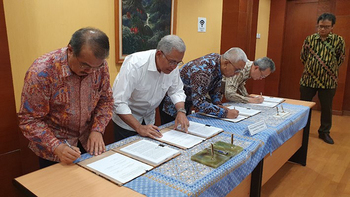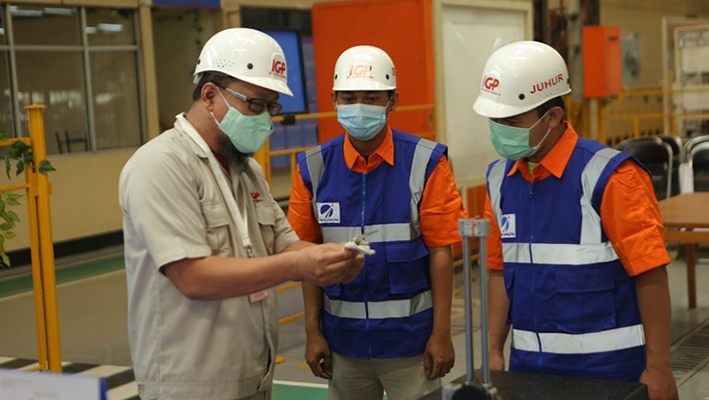Reforming Indonesia’s Technical Vocational Education and Training System
Technical and Vocational Education and Training (TVET) System Reform (TSR 2.0)
-
Commissioning Party
German Federal Ministry for Economic Cooperation and Development (BMZ)
-
Country
-
Lead executing agency
More
-
Overall term
2021 to 2024
-
Products and expertise
Economic Development and Employment

Context
Artificial Intelligence (AI) and digital transformation are important productivity and value-creation drivers. Furthermore, a green transformation of the economy is becoming increasingly important for sustainable economic growth. These factors are causing a paradigm shift in Technical and Vocational Education and Training (TVET). The aim is to produce a skilled workforce that meets the needs of the industry and can independently adapt to its rapid and disruptive evolution.
More than 20 million jobs could be replaced by automation by 2030, while 27 to 46 million new jobs could be created, including 10 million in new types of occupation. It is vital for economic development that the demands of this be met.
The current Indonesian TVET system is heavily supply-driven. In addition, factors such as fragmented TVET governance and a non-harmonised regulatory framework have made TVET improvement sluggish and have prevented innovation at TVET institutes from redesigning their programmes to meet industry needs which resulted in skills mismatches and a lack of demanded skills in the labour market. One negative result is a high unemployment rate for TVET graduates.

Objective
The Indonesian Government is successfully implementing key elements of the Indonesian National TVET Strategy.
Approach
The TSR 2.0 project supports the Government of Indonesia in creating a functional TVET ecosystem in collaboration with all relevant local actors by:
- Supporting the institutional and organisational development of the newly established TKNV(National Coordination Team for the Revitalisation of Vocational Education and Training) to improve the capabilities needed to implement the national TVET strategy.
- Assisting in the formation of sectoral councils under TKNV as a TVET development centre involving all relevant parties.
- Developing the ability of the chambers of commerce (KADIN and KADINDA) and industry to play an active role in the TVET ecosystem.
- Promoting innovative training methods using Virtual Reality (VR) in content development and the use of VR equipment (VR goggles).
Last update: May 2023





